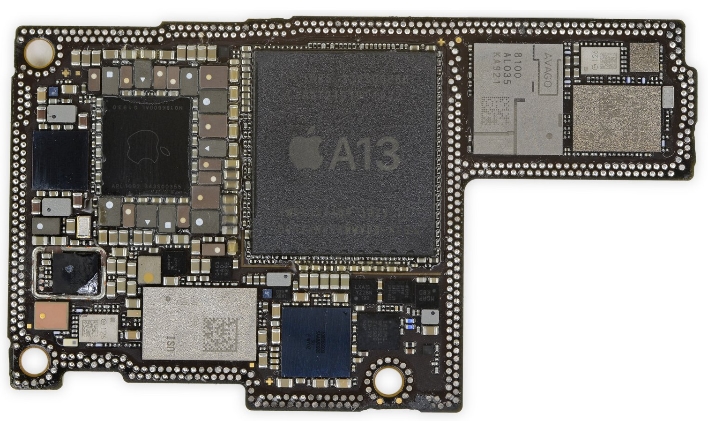Apple MacBooks With 5nm 12-Core Arm Processors Coming In 2021
That source is Mark Gurman, who says that the first Mac Arm chip will be based on Apple's upcoming A14 Bionic SoC destined for the iPhone 12 family of processors. Like the A14 Bionic, the Mac-centric processor will be built on TSMC's 5nm process node and will have a total of 12 cores. 8 of them will be high-performance cores (codename Firestorm), while 4 will be efficiency cores (Icestorm).
For comparison, the current iPad Pro's A12Z features 8 cores (4 performance, 4 efficiency) while the iPhone 12 Pro's A13 Bionic features 6 cores (2 performance, 4 efficiency). The report says that Apple will be able to scale beyond 12 cores to ramp performance for its entire range of computing products. In addition, these new Arm processors will have onboard GPUs also designed by Apple.

There's no question that Apple has been unhappy (to say the least) about Intel's processor roadmap and numerous delays transitioning from 14nm to 10nm and beyond. By bringing processor development in-house, it's able to set its own timetable (depending on the capabilities of its foundry partners), and it can further optimize performance with its own software.
Analyst Ming-Chi Kuo has previously stated that Apple could see anywhere from a 40 to 60 percent reduction in processor costs by using its own Arm chips. This would be a big boost to its bottom line, but a devastating blow to current partner Intel. On top of that, Apple would also realize some pretty substantial efficiency gains by moving from x86-64 to Arm, which would be very beneficial for its MacBook family in particular.
Speaking of MacBooks, the first device to gain the new 12-core Arm processor will be a MacBook, likely either the MacBook Air or entry-level MacBook Pro. Gurman says that Apple will likely go this route because the "first custom Mac chips won’t be able to rival the performance Intel provides for high-end MacBook Pros, iMacs and the Mac Pro desktop computer."
Apple is reportedly putting its Arm Mac chips on the same development track as the iPhone/iPad families, which means the second-generation processor based on the A15 Bionic is already in development, and will likely be featured in Macs released in 2022.


